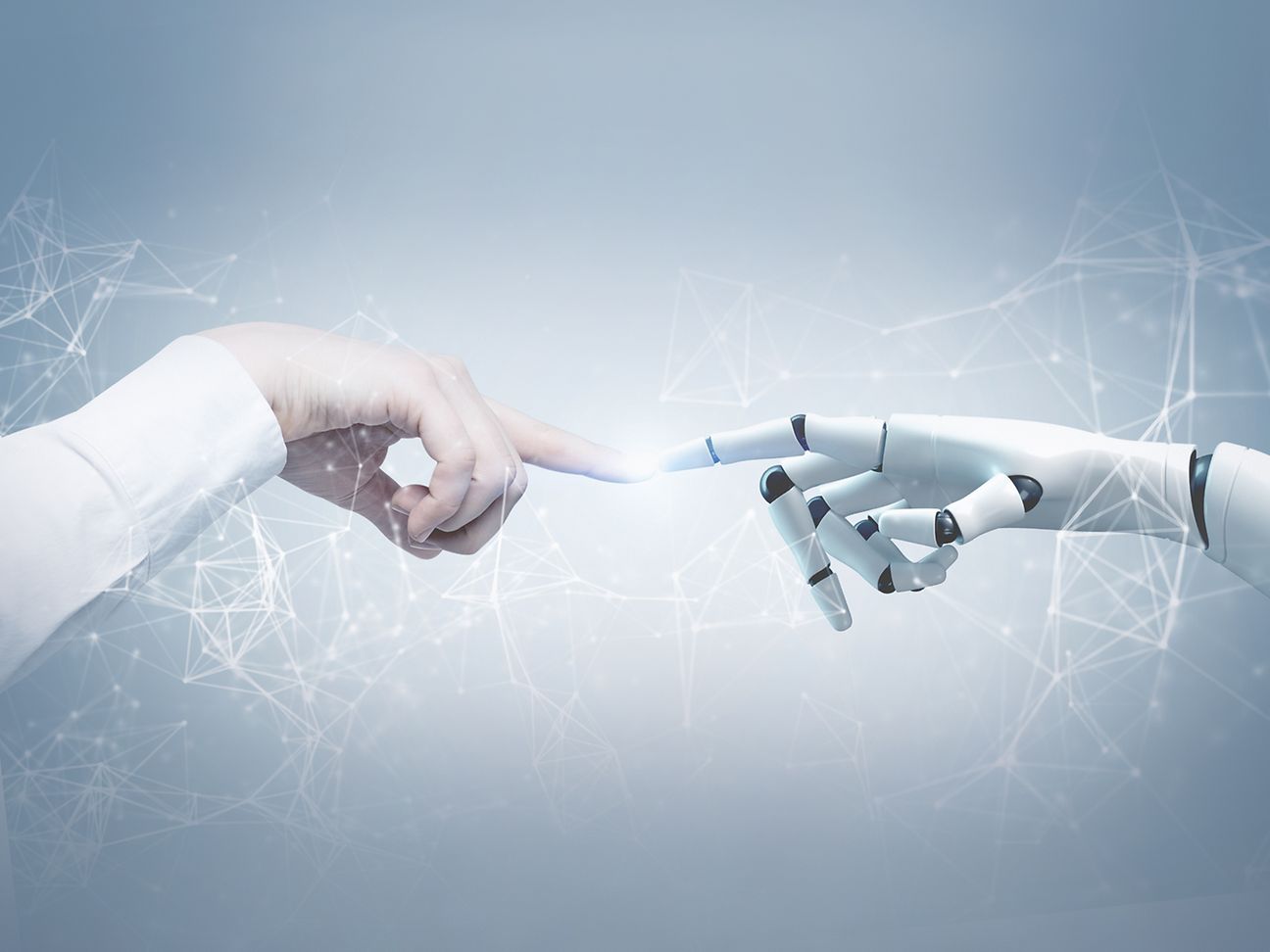Stumbling into the digital future? Raging into it? No – moving forward responsibly – with digital responsibility!
Opinion piece by Stephan Broszio, Vice President Corporate Press Deutsche Telekom.
Yesterday, analog. Today, digital. Yawn. Everything is changing. Yeah, yeah, I know. Robots are replacing people. Even me? Help! Get that thing outta here! That's kind of how many people seem to react when digitization comes up – when they're not bored, they panic. When people react in those ways, all the opportunities go out the window. Ignorance and fear don't get us anywhere. And yet – there certainly are justified reasons to be concerned. So digitization calls for digital responsibility. We don't want machines controlling everything, but we don't want Luddites smashing our servers, either. In other words, business as usual and shrugging at the consequences aren't going to be enough for what lies ahead.
So take a close look. Try to understand what sorts of innovations are coming our way. Digitization is affecting all areas of our lives: work and recreation, education, health, sports, faith, ethics – right down to questions about what makes us human, about what sets us apart from machines (and from animals). Such questions are anything but trivial. We at Deutsche Telekom do not want to come across as the all-knowing oracle. The answers have to come from many different people and sources.
Ok, but we've taken a noble stand in a number of areas. Do we want our data processed outside of Europe? No – we believe in the Internet of short distances. We don't want data taking detours through strange jurisdictions as it moves through the Internet. Big data? Yes, as long as the data is anonymized or pseudo-anonymized. And the "General Data Protection Regulation" on which our EU institutions are reaching consensus is a step in the right direction.
But digital responsibility is about more than just regulations. That's because the digital revolution has only just begun and we can only guess at where it is going to take us. And because so many aspects of it are abstract or seem abstract. And because it's moving faster than we thought it would. Much of the gadgetry we will take for granted tomorrow, was part of science fiction only yesterday.
So we're running a "digital responsibility" campaign. Its aim is to promote and support discussion – involving as many people as possible – about the many questions and issues tied to digitization. Closed-door debates among elites are not the discussion we want. We want a conversation that is down to earth and attuned to the person on the street. And that presents hope. That also shows what is actually going on – the many things that many people are not aware of. Did you know that 3D printers are turning out implants and soon will be giving us steaks?
As of part of this effort, members of Deutsche Telekom's Board of Management are putting questions to experts outside the company, experts in Germany, the U.S., Japan … Claudia Nemat, responsible for the Board department of Europe and Technology, kicked the process off with Geesche Jost, the German Government's "Internet ambassador" / advisor for the EU Commission (3 questions for). CEO Tim Höttges tested Rob Nail to see whether he is still himself or whether a robot is standing in for him (The CEO's questions). And to find out why he thinks robot assistants are so important. Rob Nail, CEO of Singularity University, studies a great many different types of areas and issues. Such as the ways in which human-machine relationships are developing. And the question of when computers might start matching – and outdoing – humans in "human" brainpower areas.
We've put everything on one page: digital responsibility. As I said, it's not a "know-it-all" catalog. It's a guide. A digital guide that will continue to grow and take shape.
